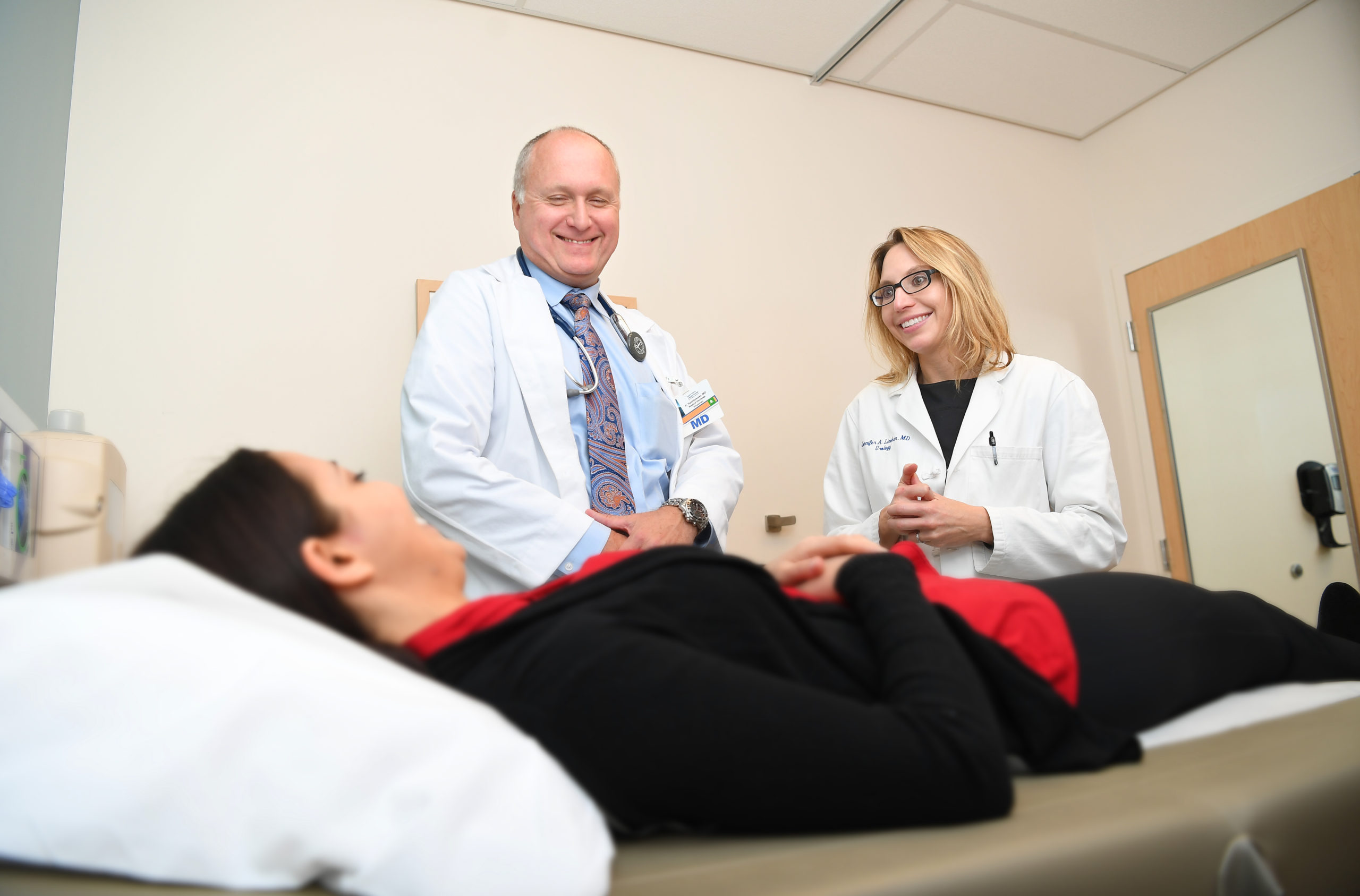
We have some exciting news to announce! Thanks to the participation of Saint John’s Cancer Institute and our proactive approach to offering new treatments through novel clinical trials, TWO new bladder cancer drugs have been approved by the FDA. We are very proud to be part of this wonderful advancement.
So what exactly is bladder cancer and how common is it?
More than 61,000 men and 18,000 women are diagnosed with bladder cancer each year in the United States. Most of these men and women are over 70 years of age.
Bladder tumors can be benign or malignant. Benign tumors are not cancerous and are not life threatening. They don’t invade tissue around them and once treated or removed, usually do not return. Malignant tumors are cancerous and have a high rate of recurrence.
Bladder cancer can present with a variety of symptoms. Some of these symptoms are:
- Blood in the urine and urgent need to urinate or having to urinate more often
- Feeling as though you need to urinate, but with no results
- Needing to strain or feeling pain when urinating
While doctors can’t explain why bladder cancer occurs, they have identified some risk factors.
- Working with certain chemicals in the workplace
- Smoking is the biggest risk factor
- People who have previously been treated with certain cancer drugs or radiation to the stomach
- Caucasians are about twice as likely to have bladder cancer than African Americans
- Age is also a factor, as 9 out of 10 people with bladder cancer are over 55 years of age
For those who have been diagnosed with bladder cancer, there are a variety of treatment options depending on the grade of the tumor, where it is located, and if it has spread to other areas. Sometimes patients may need more than one type of treatment.
Two New Treatment Options for Bladder Cancer
We are excited to announce that TWO new bladder cancer drugs have been approved by the FDA thanks to Saint John’s Cancer Institute’s participation and proactive approach to offering new treatments through novel clinical trials.
Pembrolizumab Immunotherapeutic Bladder Cancer First Line Treatment
On January 8, 2020, the Food and Drug Administration approved Pembrolizumab for the treatment of patients with Bacillus Calmette-Guerin (BCG)-unresponsive, high-risk, non-muscle invasive bladder cancer (NMIBC) with carcinoma in situ (CIS) with or without papillary tumors who are ineligible for or have elected not to undergo cystectomy.
Pembrolizumab is a FDA approved drug used to treat bladder cancer, head and neck cancer, Hodgkin lymphoma, lung cancer, and melanoma.
According to the FDA, efficacy was investigated in KEYNOTE-057 (NCT, a multicenter, single-arm trial that enrolled 148 patients with high-risk NMIBC, 96 of whom had BCG-unresponsive CIS with or without papillary tumors. Patients received pembrolizumab 200 mg every 3 weeks until unacceptable toxicity, persistent or recurrent high-risk NMIBC or progressive disease, or up to 24 months of therapy without disease progression.
Patients with bladder cancer now have more treatment options available. Read the full FDA Pembrolizumab approval announcement.
Jelmyto: FDA Approved First Therapy for Low-Grade Upper Tract Urothelial Cancer (UTUC)
On April 15, 2020, the U.S. The Food and Drug Administration also approved Jelmyto (mitomycin gel), the first therapy to treat low-grade upper tract urothelial cancer (UTUC). Urothelial cancer is a cancer of the lining of the urinary system.
Richard Pazdur, M.D., director of the FDA’s Oncology Center of Excellence and acting director of the Office of Oncologic Diseases in the FDA’s Center for Drug Evaluation and Research says, “This is the first approval specifically for patients with low-grade UTUC and provides an option for some patients who may otherwise require a nephroureterectomy,” said Pazdur. “Due to substantial treatment challenges associated with the complex anatomy of the upper urinary tract, many patients need to be treated with radical surgery – usually complete removal of the affected kidney, ureter and bladder cuff. Jelmyto gives patients, for the first time, an alternative treatment option for low-grade UTUC.”
Patients with low grade upper tract tumors FINALLY have treatment, when none existed ever before. Read the full Jelmyto Press Release.
Questions for our Urology Experts?
To speak to our Urology and Urologic Oncology team or schedule an appointment, please visit us at the following link.

